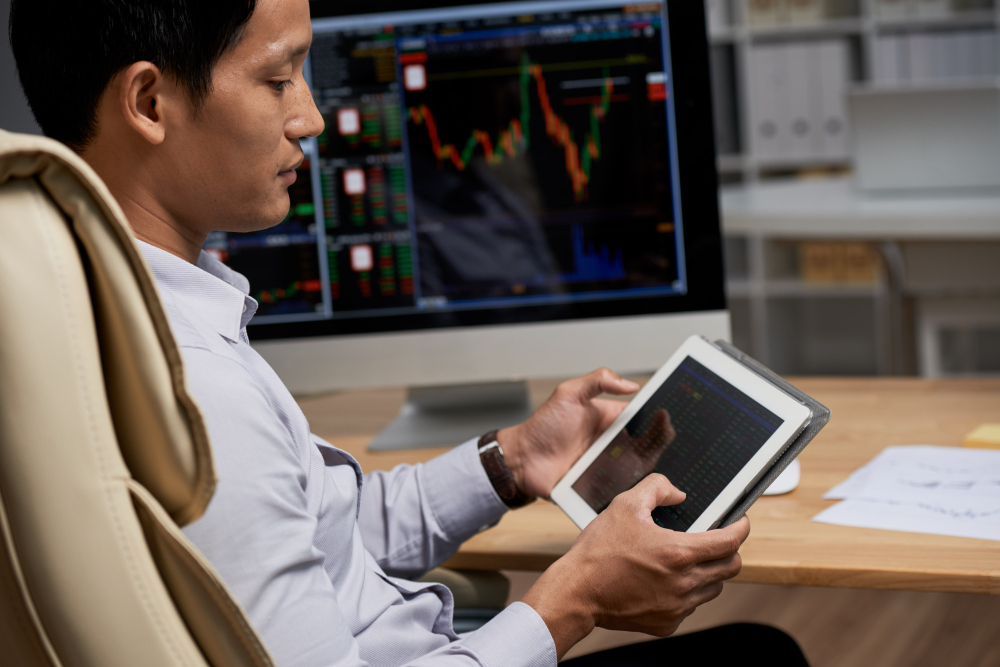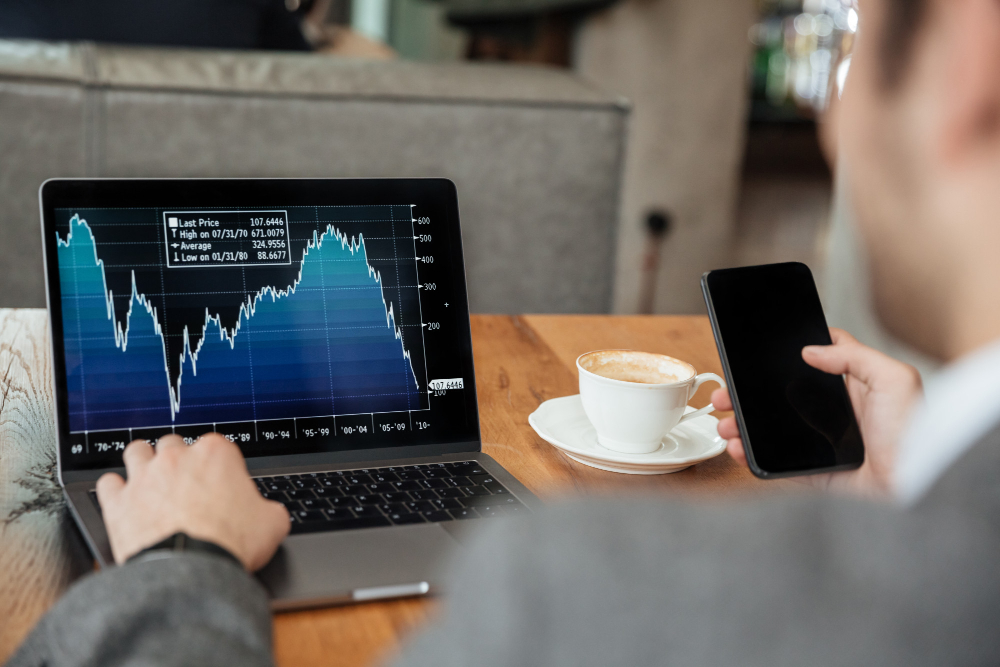The many comments and questions our company has received over the past few months as equity markets have been massively sold off and some portfolios have suffered significant drawdowns leads me to this week’s topic on trading and investing from the market’s perspective, that is, becoming empathetic with the market. I have discussed aspects of the importance of developing a Portfolio Mindset in an earlier blog. This week’s topic has a deeper look at developing the mindset and mental attributes of a skilled trader. This centres around your edge as a trader, understanding and accepting it, to allow you to trade and invest objectively and confidently over the long term.
From an early age in our life, we are taught to think that losing is bad. We live in a competitive society where we are conditioned in our business, sporting, and social environments to think that we must win at each and every task. This ‘competing to win’ mindset becomes ‘hard-coded’ into our thoughts and resonates through all facets of life. It has a profound influence on us each day, both consciously and subconsciously.
We are conditioned throughout our lives by our parents, peers, media and other environmental and social stimuli to feel negative emotions such as anger, embarrassment, disappointment and frustration when we lose or we are wrong. When we lose we think we have failed. We worry what others will think and how society will view us because of the loss. We know also, that winners are praised for their accomplishments.
In share trading, negative reactions to losses are no different. The same pressures, beliefs, expectations and disappointments are evident. Unskilled traders see losses and drawdown as failures. Resultant inconsistent trading often leads to complete withdrawal or avoiding executing for fear of more disappointments, not to mention poor results.
People in this position are dramatically different to a skilled trader who looks at the market objectively and consistently. Both have experienced the same conditioning from their environment – skilled traders have learned to think, feel, see and act differently.
To become consistently successful in the share market, skilled traders have learned to think in terms of overall probabilities – not in terms of winning and losing on individual trades. The relevance of the outcome of individual trades is minimal. They focus on the long term performance of the probabilistic edge of their trading method. Winning, losing, new portfolio equity highs, and portfolio drawdown are seen by the skilled trader as the probabilities playing themselves out in the market. These are normal occurrences for the skilled trader. They actually expect them to happen and have conditioned themselves to accept that they will happen in the natural course of their trading and investing business knowing that the variables and combinations of variables that interplay in the market are near limitless.
So what do we mean by probabilities and where do these probabilities come from? We mean that you must understand what your probabilities of success/failure are from the way that you trade the market. These probabilities are determined by the number of times that you win and how much you win compared to how much you lose, on average, over a large sample.
When this is measured through research over a large sample of trading events, through different types of markets, you can determine the mathematical expectation for the way that you trade. If you cannot understand or define your probability of success then you are gambling and should not commence trading until you do understand your probabilities of success. All of Share Wealth Systems’ solutions have been designed from this perspective.
Many novice traders draw rash, subjective, and impulsive conclusions from small samples and brief experience. Immediate success is craved for confidence building and self-determination. This is another trait learned from modern society, that of instant gratification rather than delayed gratification. It is normal to want to win as many times as possible, especially early in a new trading enterprise. The confidence gained from success leads to an expectation of future success. However, sophisticated traders define their edge precisely, know the probability of success that it represents, know the term over which it delivers success and know an adequate sample size is required for long-term results.
To make the transition from a novice trader’s perspective to that of a skilled trader who thinks from the market’s perspective, often means changing ingrained beliefs and ‘reprogramming’ our mindset to a new understanding. Share Wealth Systems’ training services and solutions are designed to help you become a skilled trader.
Becoming empathetic with the market means that you will no longer think in terms of “right” or “wrong” or “win” or “loss” on individual trades. Taking new trades and closing trades based on your trading system simply means you accept the probabilities of your edge. Whatever the result of individual trades, you can be at peace knowing that the overall outcome will reflect the statistical probability of the system over a large sample of trades.
Being empathetic with the market means that you expect to have winners, losers, new portfolio equity highs, and portfolio drawdowns, that’s the innate personality of the market, that’s how it is wired, that is what successful traders are empathetic of.
Most traders do not understand, or fully accept, this concept. Many dismiss it as unimportant but most of these traders are destined to failure. I suggest that being empathetic with the market is an absolutely essential component in the make-up of every successful trader.
Take time to seriously consider how you think and feel about each trade you execute. Critically analyse your feelings and actions to determine what you need to do to better align your thinking with the market’s movements – probability, as opposed to over-emphasising the results of each and every trade and becoming overly involved emotionally with these trades. Know and understand your system and trading edge so that you expect, accept, and embrace the outcomes. It is the long-term performance that is far more important than the result of each winning and losing trade.
If you don’t have an EDGE yourself, you should seriously consider SPA3 as your trading system. Not only does SPA3 provide investors with an EDGE, but it also provides the rigour, process, and structure for long-term success in the market.
To take advantage of SPA3’s 10th Anniversary special offer, click the link below.



7 Responses
been gettin caught up a bit myself in that mindset but a im a work in progress ill get there cheers
Very inspirering words Gary, I can still remember when I first started trading with SPA & I used to get nevous about whether the trade would work or not but over a short period of time & sample trades I started to trust the edge. It didnt matter anymore whether I had a winning or losing trade, we just get in & out trades without any emotion or a second thought.
Spa3 is the way to go if you want to trade shares.
Dino.
Reply to Comment by Rino:
If the rules of the game are indeed changed this time around, which is a high probability scenario, it won’t be the first time. Almost every major bear market over the last 100 years has resulted in regulatory and legislative changes that are aimed at protecting ourselves, human beings, collectively. However, greed, ego, pride and oneupmanship seem to find a way of self sabotaging ourselves collectively.
So your real question is, “What affect will this have on SPA3?” I cannot provide certainty but I can say this. If one is actively investing using discretion then if regulatory and legistlative changes are so far reaching that they do affect the dynamics and paradigm of share price movements then how will you know whether it is your discretion or the changes that have affected your performance.
A mechanical system provides a benchmark from which to measure the affect, if any, and if you decide that there has been a change in performance due to regulatory changes then the mechanical system can be modified accordingly. You know what to go to work on.
Of course, deciding that regulatory changes have made a difference can easliy be determined by benchmarking the methodology against the market benchmark over a period of 12 months or so.
Discretionary investors should therefore know whether their discretion has had an edge or not over the last 5 years or so. Have they outperformed the ALL-ORDS or ALL-ORDS Accumulation Index? If not, then I suggest that their discretion is out of sync with the market. Working on changing your discretion as a decsion support system for market endeavours is far far more difficult than changing the rules of a mechanical system. That’s material for a whole number of blogs!!
If using your discretion has deleivered outperformance, do you have the confidence of repeating the outperformance over the next 5 years?
My view is that regulatory changes will hardly affect the comparative performance of the system and SPA3 will reach a new equity peak in the future. In the meanwhile what will active investors trust? Their discretion (and / or outside influences like brokers, newsletters, news etc – collectively what I call “noise”) which has delivered their performance to date, or are they going to trust a rigorous and structured approach that has delivered the performance that SPA3 and SPA3 hEdge has done and can continue to do.
Ragards
Gary
Reply to Comment by Max:
We are all on a journey of getting better at what we do in all our walks in life. It’s only those that throw in the towel that don’t improve.
We never stand still with our endeavours of getting better, we either go forwards or we go backwards. All that we have to do is decide in which direction we want to go with our chosen endeavours. It’s a journey of overcoming.
Regards
Gary
Gary – I get it! Please continue writing as I am finding that by understanding my edge in the share market I am also learning to look for edges in other areas of my life as well. It doesn’t have to be much, but what you’ve shown me is that every little bit stacks the odds in your favour. Now if only I could explain to my frustrated single friends that finding a wife is a simple matter of finding a suitable market (10km radius will do), increasing entry/exit signals (find the places with more women, exit those with more men), risk management (avoid married women) and money management (pay for dinner). And to take the analogy one step further we just simply accept the losses (not everyone will be THE ONE) as part and parcel of achieving success overall.
The analogy can be applied to so many things in life…. everything in fact. I have an idea for a book – INCREASE YOUR FUN EDGE – using probabilities to find excitement.
Reply to Comment by Marcadrian:
You have got it! Everything we do we are executing in a probabilistic environment. It’s about understanding how to achieve high probability outcomes (or near certainty) in an uncertain environment. Each single event carries uncertainty but near certainty can be achieved over a large sample.
This applies to crossing the road, driving a motor car, relationships, golf, footy and yes, investing too. But an edge is required.
Regards
Gary
The quality of man’s phyche as you say, does not change very quickly, so a statistical edge works over the long term. But what about external factors like government changing the rules of the game? Is this likely to happen now? As this happened in the past?